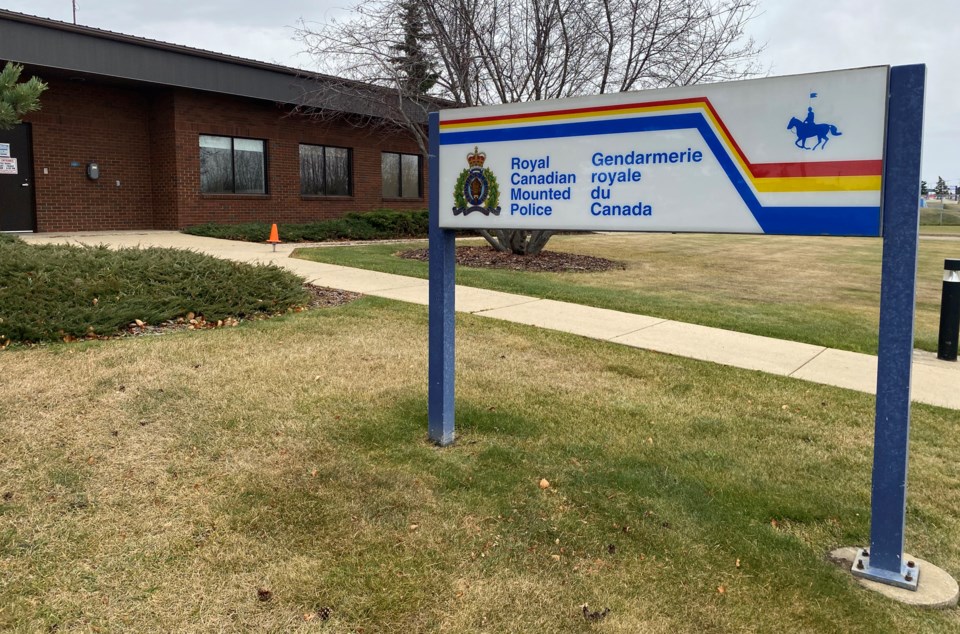WESTLOCK – The Town of Westlock says a recently-approved retroactive pay increase for RCMP members nationwide, which could see the town on the hook for as much as $55K in back pay per local member, “will hammer” the municipality.
At their Aug. 16 meeting, councillors voted 5-0 (councillors John Shoemaker and Curtis Snell were absent) to pen a letter to the minister of Public Safety Canada stating the federal government should cover the retroactive pay increase for RCMP members included as part of a recently-inked collective agreement between the National Police Federation, the union that represents the RCMP, and the Treasury Board.
The new deal, which runs until March 31, 2023, sees RCMP wages upped across the board and also includes retroactive pay increases going back to 2017 — the last time the RCMP members saw a pay raise was 2016. While a tentative agreement between the two sides was announced earlier this summer, the ratification vote was only announced this past week.
In her request for decision to council, CAO Simone Wiley stated the decision “has the potential to have a significant impact to the town’s operating budget” as the amount is estimated to be $45,000 to $55,000 per RCMP member. The new agreement contains a 1.5 per cent annual salary increase for constables effective April 1, 2017, as well as a “market adjustment” worth between 1.5 per cent to 2.5 per cent each year until 2022.
“This will hammer us. This is big dollars,” said mayor Ralph Leriger, who’s also reaching out to Conservative MP incumbent Arnold Viersen to express his concerns. “We phased in (the town’s RCMP costs) and absorbed those costs and now they want us to look backwards and add more based on negotiations that we weren’t part of? We have no ability to deficit budget, so how are supposed to find money for past years? I don’t get it.”
“This is not a small download,” added Coun. David Truckey, who made the motion to pen the letter. “This is not some minor grant program that has disappeared. This is a one-time, large-scale hit.”
Wiley said there are 47 municipalities that have Municipal Police Service agreements, including the Town of Westlock, which was forced to pay for policing services starting in 2018 due to its population surpassing 5,000. Wiley’s RFD notes that during the lengthy negotiations between the feds and the union, municipalities were not at the table, or provided updates.
“The concern is that municipalities will be expected to pay for the retroactive increases. The retroactive costs are estimated to be between $50 and $60 million which translates to about $50,000 per constable,” she said, noting the issue was front and centre during a virtual session hosted by Alberta Urban Municipalities Association in mid-July.
“We haven’t been told that we will have to, but we haven’t been told that we won’t have to,” she noted in a follow-up interview Aug. 18.
“This is kicking us when we’re down. This could represent $200,000 to $300,000 for our municipality and I don’t know where we’re anticipated to find those dollars because they’re from previous budget years. Technically speaking they’re previous wages,” added Coun. Murtaza Jamaly.
Under the new agreement, effective April 1, 2022, a constable will make up to $106,576, which is a jump of $20,000, while a staff sergeant will make between $134,912 and $138,657. Previously, a constable could make up to $86,110, while a staff sergeant made between $109,000 and just over $112,000. The deal covers all RCMP members from constables to staff sergeant majors and includes special constables. According to the latest numbers, the RCMP employ 11,913 constables and 3,599 corporals, meaning that the raise could add up to $238 million to the force’s annual payroll if all constables reach the top salary echelon (generally after three years of service) beginning next year.
“Not only has the union negotiation gone in a direction that potentially puts all the partners at risk, but this is coming back from the RCMP as a lack of recognition in terms of keeping up and keeping pace with measured increases which are sustainable year over year,” Jamaly continued. “Whether you look at RCMP wages or infrastructure, if you don’t take care of those things, in time they become one really big bill that comes to a head. And I think that’s a failure on the federal government’s part and why should we have to pick up the tab?”
Added Wiley: “Now that they’ve done these negotiations and there is a salary increase, we have to accommodate for that and go forward in our budgeting.”



